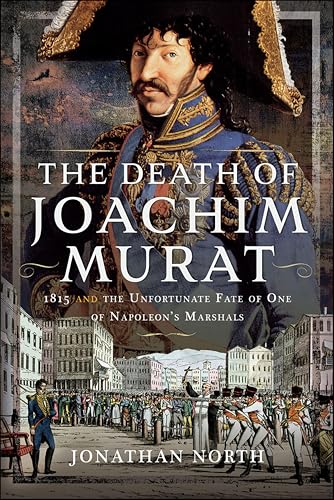
The Russian Campaign, 1812
by Raymond-Aymery-Philippe-Joseph de Montesquiou duc de Fezensac
Popularity
0.78 / 5
* A book's popularity is determined by how it compares to all other books on this website.
Where to buy?
Buy from Amazon* If you buy this book through the link above, we may receive a small commission at no extra cost to you.
The Russian Campaign, 1812 by Raymond-Aymery-Philippe-Joseph de Montesquiou duc de Fezensac
Details
War:
Napoleonic Wars
Perspective:
Commanders
Biography:
No
Region:
Europe
Page Count:
168
Published Date:
1970
ISBN13:
9780820302461
Description
Brief Summary
The Russian Campaign, 1812 by Raymond-Aymery-Philippe-Joseph de Montesquiou, duc de Fezensac, provides a detailed account of the French invasion of Russia during the Napoleonic Wars. The author, who was a participant in the campaign, offers a first-hand perspective of the events, capturing both the strategic aspects and the harsh realities faced by the soldiers. His narrative follows the journey from the initial advance into Russian territory to the devastating retreat, highlighting the challenges and turning points that defined this critical military campaign.
Main Themes and Topics
The book delves into several themes, most notably the hubris and ambition that led to the campaign's initiation. It explores the overconfidence of Napoleon's Grand Army and the logistical nightmares that contributed to their downfall. A significant focus is placed on the harsh environmental conditions of the Russian winter, which played a crucial role in the army's retreat. Additionally, the theme of leadership is scrutinized, examining the decisions made by both French and Russian commanders during this pivotal period in European history.
Writing Style and Tone
Raymond de Montesquiou's writing style in The Russian Campaign, 1812 is marked by its attention to military detail and vivid descriptions. His tone is both reflective and analytical, providing insights into not only the strategic elements of the campaign but also the personal experiences of the soldiers. His narrative is enriched by his direct involvement, offering a blend of historical documentation and personal memoir. The clarity and precision of his prose bring the events to life, painting a stark picture of warfare during this era.
Criticism
While the book offers an invaluable primary account of the 1812 campaign, some readers may find its focus heavily skewed towards the military aspects, potentially at the expense of broader political or social contexts. This concentration on military detail may appeal to history enthusiasts and military scholars but could be less engaging for general readers seeking a more comprehensive view of the period's complexities.









